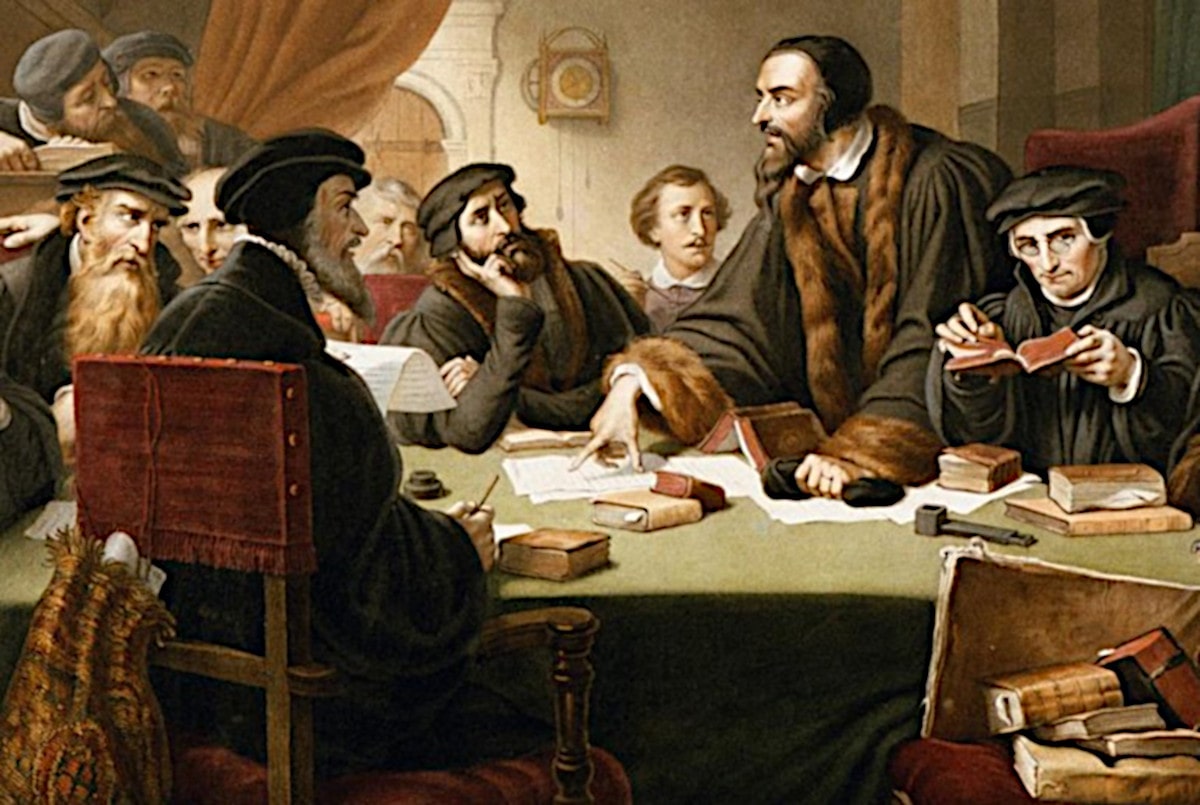Calvinism is one of the most influential branches of Protestantism, founded in the 16th century by the French theologian John Calvin. His teachings had a profound impact not only on religion but also on philosophy, politics, economics, and the culture of many nations. Over the centuries, Calvinist communities played a key role in shaping European societies and also left a lasting mark on North America and South Africa. Many of the doctrine’s core ideas continue to attract the interest of scholars, historians, and believers. Below are some interesting facts about Calvinism that you might not have known.
- Calvinism originated in Geneva in the mid-16th century, where John Calvin spent most of his life. He restructured the city’s church organization and turned Geneva into a center of Protestant thought. It was there that Calvin published his major work, Institutes of the Christian Religion, which became the foundation of Calvinist theology. His ideas quickly spread across Europe thanks to the printing press and Protestant networks.
- One of Calvinism’s central doctrines is the concept of predestination, the belief that God has already determined who will be saved and who will be condemned. This teaching sparked debate even among other reformers. For many believers, it was a source of reassurance in the divine plan. It also influenced the development of Protestant work ethics.
- Calvinism upholds the Bible as the sole authority in matters of faith and daily life. This emphasis encouraged literacy among ordinary people, as every believer was expected to read the Scripture personally. Education became a key value in Calvinist societies, leading to the foundation of schools and academies. Geneva established a prominent academy to train pastors and missionaries.
- The Calvinist church does not recognize papal authority or episcopal hierarchy. Instead, it follows a presbyterian model where elders and pastors are elected by the congregation. This form of governance promoted local self-rule and community responsibility. The model would later influence democratic forms of political organization.
- In England, Calvinist followers were known as Puritans and significantly shaped the country’s religious and political life. Their strict moral values, discipline, and focus on community laid the groundwork for Protestant societal ethics. In the 17th century, some Puritans emigrated to America, where they laid the foundations for future American culture. They aimed to build a model Christian society.
- Calvinism contributed to the rise of capitalist economy through its emphasis on a strong work ethic, as observed by sociologist Max Weber. Traits like self-discipline, frugality, and accountability promoted economic success. These were seen not only as virtues but also as possible signs of being chosen by God. This mindset became embedded in Western business culture.
- In France, Calvinists were known as Huguenots and faced severe persecution from the Catholic authorities. One of the most tragic events was the St. Bartholomew’s Day Massacre in 1572, during which thousands of Huguenots were killed in Paris. Many fled to England, Switzerland, the Netherlands, and the New World. These migrants played vital roles in their new communities’ development.
- In Scotland, Calvinism became the foundation of the national Presbyterian Church. Its founder, John Knox, was a student of Calvin and led a major religious reform in the country. Under his influence, the church adopted a unique structure that rejected hierarchical control. This Scottish model inspired other Protestant nations.
- In the Netherlands, Calvinism played a pivotal role in the fight for independence from Catholic Spain. Shared religious identity helped unify the population against imperial rule. After achieving independence, Calvinism became the dominant faith in the region. Despite this, a tradition of religious tolerance toward minorities was preserved.
- In South Africa, Calvinism was the faith of the first Dutch settlers who established the Cape Colony. Their religious legacy remained deeply rooted in Afrikaner culture. Later, Calvinist doctrine was used to justify the ideology of apartheid. This historical association remains a subject of theological and political debate.
- In the United States, Calvinism influenced both religious and political traditions. Ideas of self-governance, personal responsibility, and liberty aligned well with the foundations of American democracy. Many of the country’s founding fathers came from Puritan backgrounds. They saw America as a new promised land to fulfill God’s plan.
- Today, Calvinism continues to thrive in various forms, particularly within Reformed and Presbyterian churches. These churches are active in the United States, the Netherlands, Switzerland, South Korea, and beyond. While there are theological differences, they all preserve the essential tenets of Calvin’s teachings. They also focus on education, missionary work, and social justice.
- Some scholars view Calvinism not only as a religious system but also as a philosophical framework. It addresses profound questions of free will, the nature of evil, and divine sovereignty. Calvin’s views are often compared to those of early Church Fathers like Augustine. This makes Calvinism a significant part of Christian intellectual history.
- Theological debates between Calvinists and Arminians revolved around issues of human freedom and divine grace. Arminians argued that individuals could choose salvation through cooperation with grace. Calvinists insisted that salvation depended solely on God’s will. These disputes continue to shape modern theological schools.
- Calvinist symbolism emphasizes simplicity, purity, and fidelity to Scripture. Common symbols include books, lamps, crosses, and a heart placed in an open hand. The heart-in-hand image represents total trust in God and willingness to serve. These motifs appear in church architecture, art, and Protestant culture.
These fascinating facts about Calvinism reveal its far-reaching impact on religion, society, and thought. The movement fostered a new way of living based on discipline, faith, and responsibility. The ideas of John Calvin remain relevant centuries later and continue to inspire communities worldwide. You might not have realized just how deeply Calvinism has shaped modern civilization.





